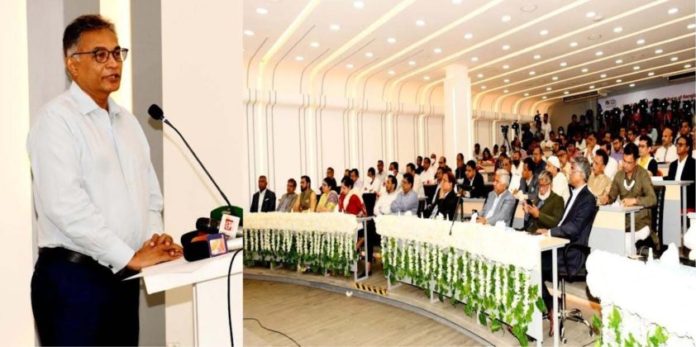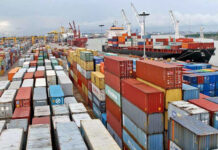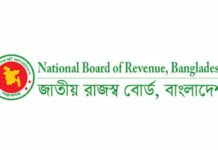Traders feel that diversification of export products is essential to meet the post-LDC transition challenges. Therefore, instead of identifying a few sectors as priority sectors they have called for equal opportunities for all the industrial sectors of the country for product diversification and increasing export capacity.
This was stated by business leaders at a seminar on ‘Bangladesh’s Export Challenges after LDC Graduation: What the Private Sector Should Do’ organised by FBCCI at Federation Bhaban in Motijheel on Saturday (16 April).
Chief Secretary to the Prime Minister Dr. Ahmed Kaikaus was the chief guest at the seminar. Special guest speeches were given by Md. Sirajul Islam, Executive Chairman of Bangladesh Investment Development Authority (BIDA), Tapan Kanti Ghosh, Senior Secretary of Ministry of Commerce, Zakia Sultana, Industry Secretary and Sharifa Khan, Member of Planning Commission.
FBCCI President Md. Jashim Uddin welcomed the seminar. During this time, he presented a number of export-oriented proposals from traders.
Former President of MCCI Syed Nasim Manzur, Managing Partner of PWC Bangladesh Mamun Rashid, Advisor of FBCCI Manzur Ahmed, Former Chairman of Bangladesh Trade and Tariff Commission Dr. Mojibur Rahman, and CPD Research Director Dr. Khandaker Golam Moazzem.
FBCCI President Md. Jasim Uddin said that the export sector will face the most challenges as a result of the LDC graduation. Therefore, all sectors need to be given equal benefits in export expansion. He also requested permanent registration without the need for renewal and for setting up industries only after acquiring land, environment, building, fire, and tax certificates. At the same time, he called for the implementation of EPB, NBR, and other administrative single window systems in all types of one-stop services and the implementation of all export-related activities of BIDA.
The chief guest, Chief Secretary to the Prime Minister, Dr. Ahmed Kaikaus said that the Prime Minister herself branded the trade and commerce of Bangladesh. She took businessmen with her on every foreign trip. Noting that the four years leading up to the LDC graduation is also significant, the Chief Secretary said that the pace at which Bangladesh is advancing will change the calculations made by various organisations during this period.
BIDA’s Executive Chairman Md. Sirajul Islam said during his special guest speech that although the World Bank has stopped publishing the Business Facilitation Index, his organisation is working tirelessly to create a business-friendly environment in the country. The Executive Chairman said that since its launch in 2019, more than 50,000 BIDA-related services have been provided from the one-stop service. On average, 100 BIDA services are being provided daily, he said. However, only 58 services of 18 companies outside of BIDA have been added. He urged businessmen to avail services from BIDA’s OSS platform.
Commerce Secretary Tapan Kanti Ghosh said that negotiations were underway with the World Trade Organization (WTO) to ensure that duty-free market facilities continue for at least six years after the LDC graduation. However, the Commerce Secretary said that there was no alternative to free trade agreements to maintain long-term export and trade competency. He said that the government is making preparations for this.
Planning Commission member Sharifa Khan said that Bangladesh’s industrial sector is quite diverse. Almost all types of products are produced in the country. But these products need to be made suitable for the export market.
Former member of the Bangladesh Trade and Tariff Commission Dr. Mostafa Abid Khan presented the keynote speech at the seminar. He said that after the transition from LDC, Bangladesh will face three main challenges. These include loss of duty-free market access, cessation of export subsidies, and closure of facilities under TRIPS. As a result, Bangladesh will have to pay 16.5% duty on garments exports to Canada, 11.5% to the European markets, 9% to Japan, and 12.5% to Korea.
According to the World Trade Organization, due to the increased tariffs exports could fall by 26.6%, with a monetary value of USD 6,380,306 million.
The keynote speech recommended reducing the cost of doing business, increasing the efficiency of customs, increasing productivity, and increasing foreign investment in order to meet the post-LDC challenges.




